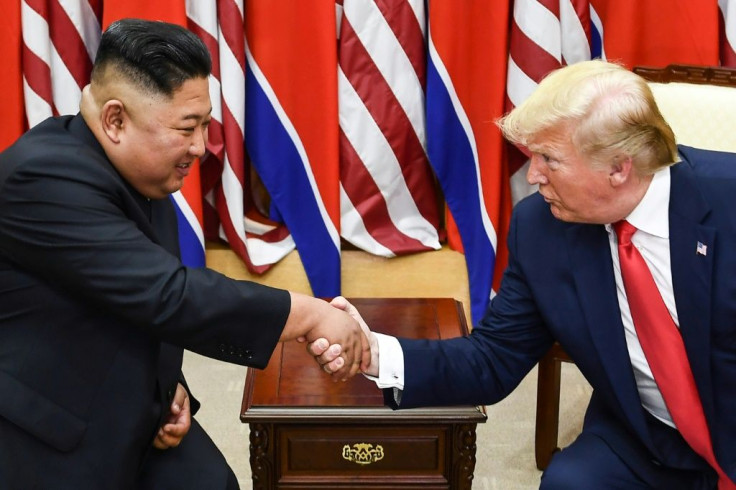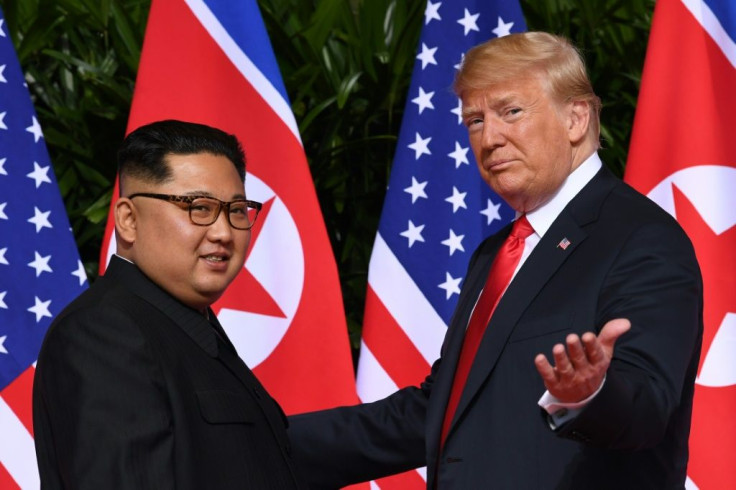North Korea, Trump Nuclear Talks: Missile Launch Not A Problem, Kim Still A Friend

President Donald Trump has refused to criticize North Korean dictator Kim Jong-un for the test launch Wednesday of a submarine launched ballistic missile (SLBM), parts of which exploded inside Japan's exclusive economic zone (EEZ).
Despite this latest North Korean provocation, Trump is confident the planned resumption of stalled nuclear talks with Pyongyang will proceed. Trump walked-out of the last negotiations held in Bangkok, Thailand on Feb. 28 after Kim rejected his all or nothing offer.
"They want to talk and we'll be talking to them," said Trump in his first public reaction a day after the SLBM launch.
Asked if the test had gone too far, Trump replied "We'll see."
Trump has always said he saw no problem with a series of short range missile tests conducted by North Korea this year. He still insists he retains "good" personal ties with Kim. Last year, he told the world he and Kim “fell in love.”
Trump's latest inaction means he hasn't either warned against or strongly condemned all the North Korean missile tests this year. Political analysts note Trump still believes his failed "personal relationship" with Kim will lead to the complete denuclearization of North Korea and accolades as a peace maker.
The defense establishment of both countries disagreed with Trump’s silence. U.S. Secretary of Defence Mark Esper and Japan Defense Minister Taro Kono issued a statement in which both agreed “that the North Korea tests are unnecessarily provocative and do not set the stage for diplomacy and that North Korea should cease these tests.”
The SLBM launch comes before the resumption of working-level talks in Sweden between North Korea and the U.S. later this week. A team of North Korean negotiators is now in Stockholm.
Western military analysts said the “Pukguksong-3” SLBM test signifies a new and dangerous advancement in capability that will eventually allow North Korea to launch nuclear missiles at the United States from submarines lurking in the waters off the East Coast.
It will also give North Korea, for the first time, a "second strike" capability in the event of a nuclear exchange with the U.S. North Korea is banned from ballistic missile launches by U.N. Security Council resolutions.

North Korea was elated at Wednesday’s successful test, saying it "ushered in a new phase in containing the outside forces' threat." The Federation of American Scientists said the launch was "unambiguously the first nuclear-capable missile test since November 2017.” In the test, this SLBM was launched from a submersible instead of a submarine.
North Korea has conducted eight missile tests involving one or more missiles since the start of the year until Oct. 2. It launched only one missile in 2018 as denuclearization talks had begun. These talks stalled this year, leading North Korea to resume its missile tests to put pressure on Trump to restart the talks and lift U.S. economic sanctions.
Wednesday's missile launch still delivers the same message to Trump.
© Copyright IBTimes 2025. All rights reserved.





















